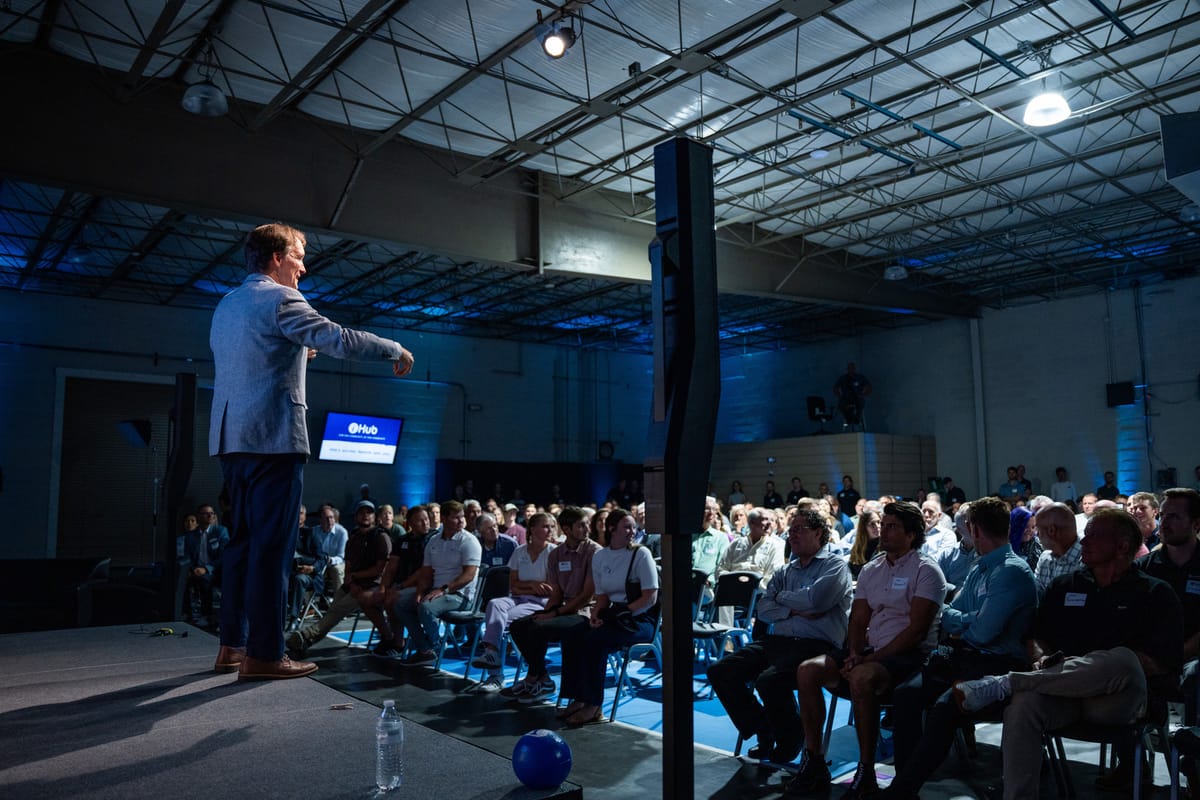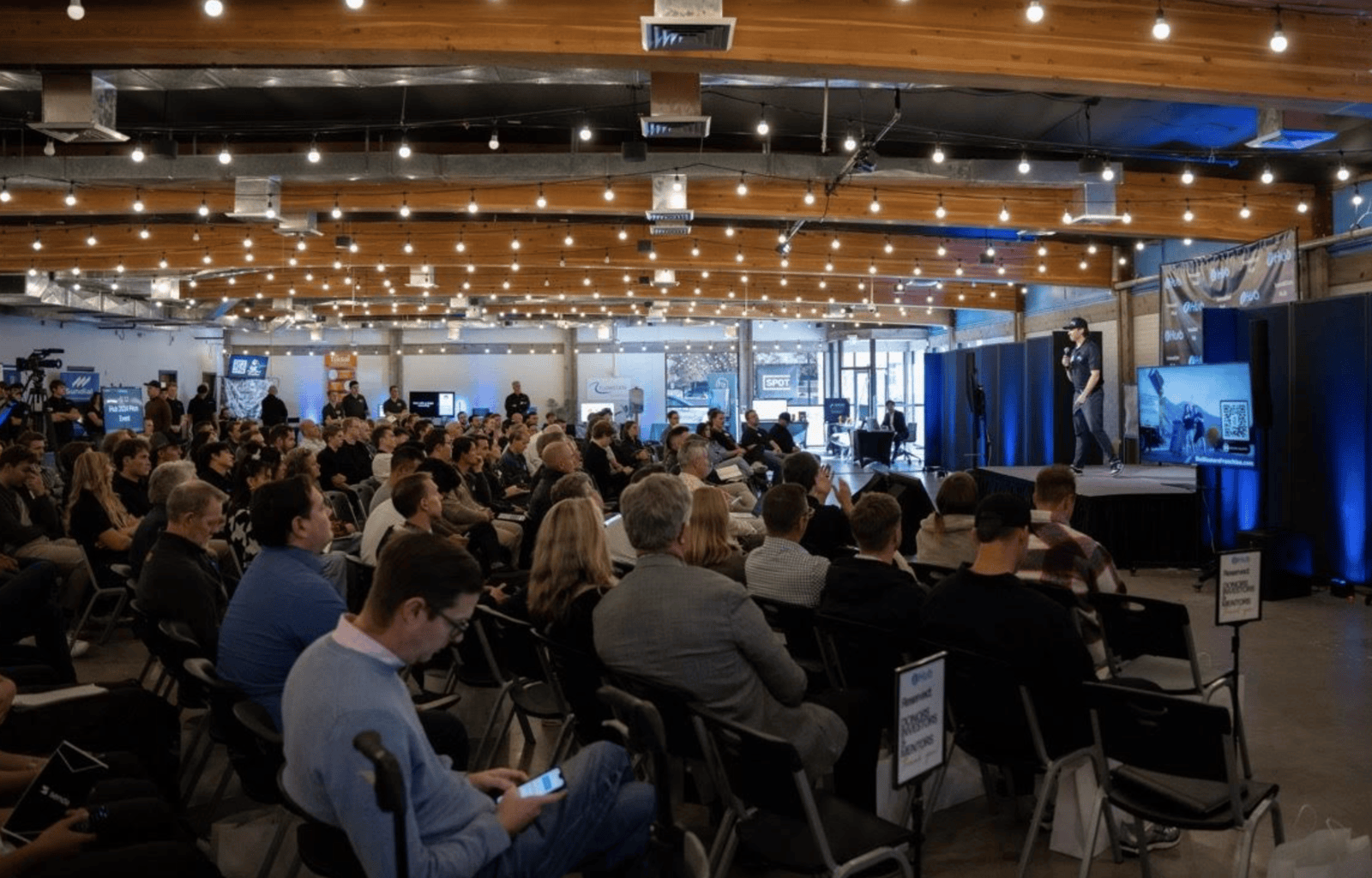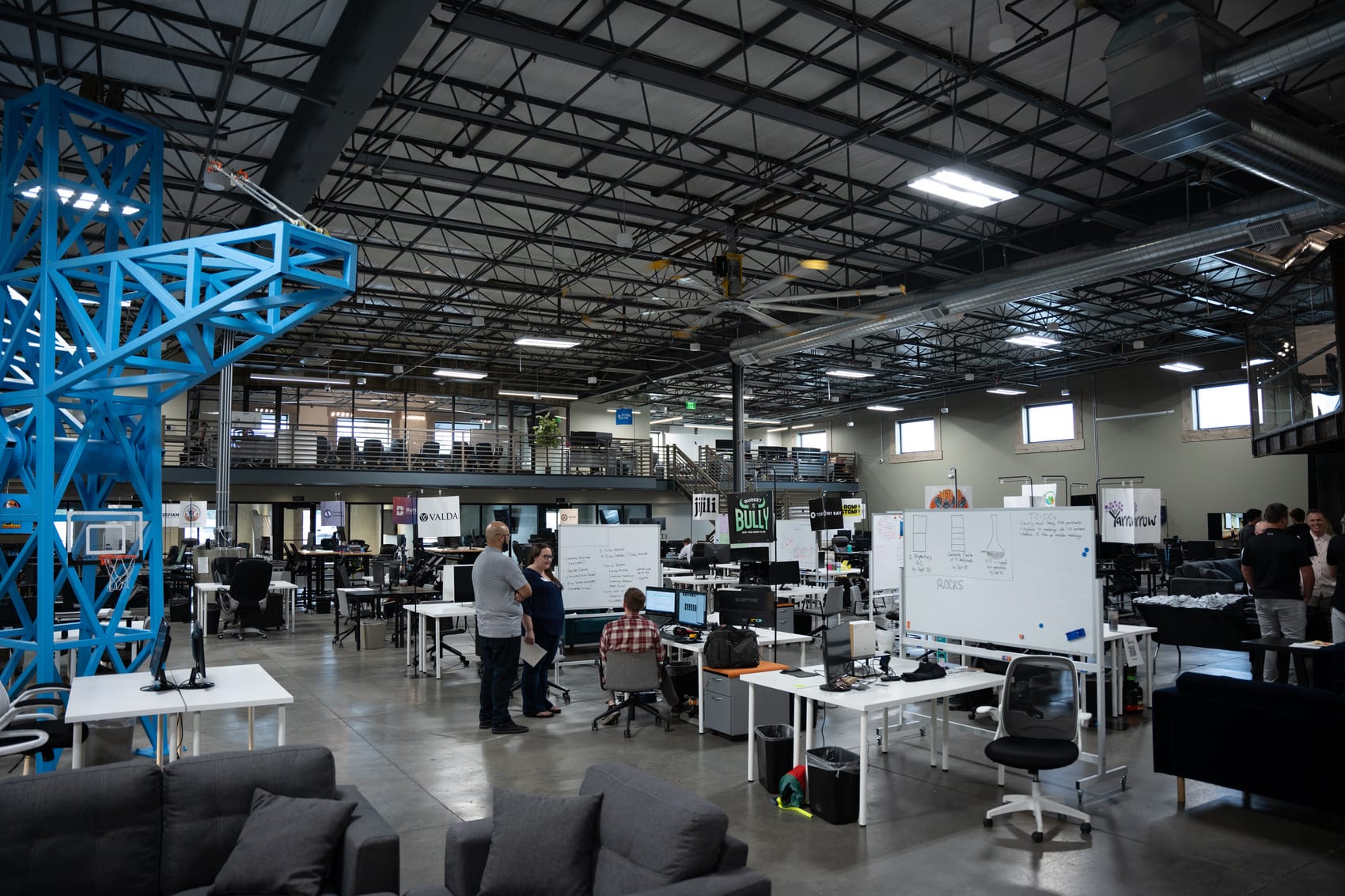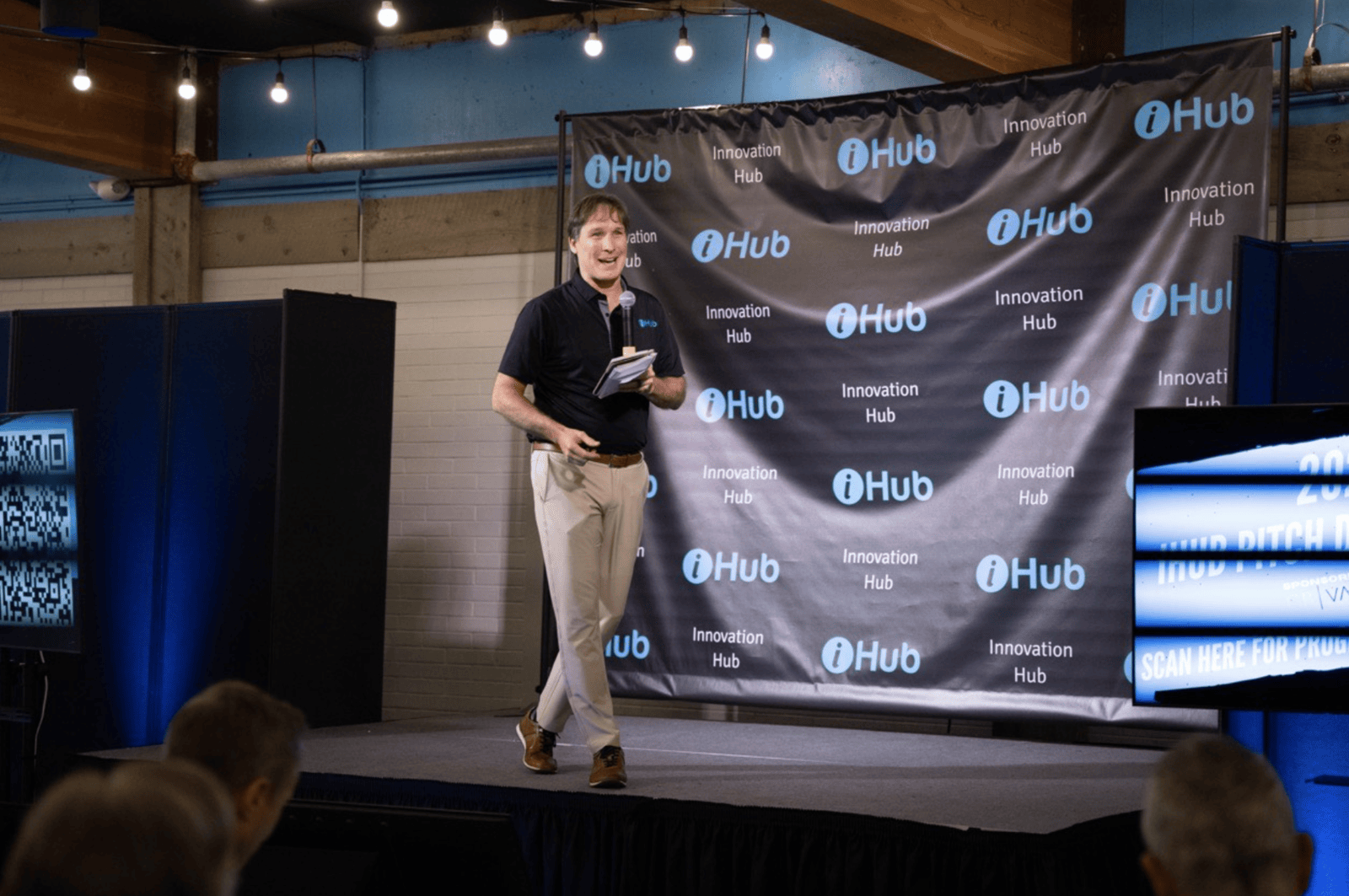

One year after launching, iHub, nonprofit incubator based in Utah County, is gearing up to celebrate its anniversary with an exclusive event. iHub expects 400 to 500 guests, capping off a breakout year that’s seen rapid growth and rising startup success stories.
But what exactly is the Innovation Hub of Utah, aka iHub, and who’s behind it?
A Founder Who’s Never Had a Boss
At the heart of iHub is Corbin Church, a lifelong entrepreneur and adjunct professor at BYU’s Marriott School of Business. He’s run companies since age 13, starting with a snow shack franchise he sold before his LDS mission.

“I’ve never had a job in my life,” Church says. “I’ve signed every paycheck I’ve ever received.”
Church and his co-founder and wife, Kara, opened iHub in 2024 after spending months studying incubators across the country to figure out what made them thrive—or fail.
What they built is not your average co-working space.
“This is a nonprofit incubator,” Church explains. “We help mostly students and recent grads from BYU and UVU get their businesses off the ground.”
What iHub Offers
iHub offers early-stage founders mentoring, legal and business validation help, workshops, speaker events, and networking dinners. The only upfront requirement? A validated business idea—no revenue, capital, or prototype.
The goal: build a $20 million fund that will allow iHub to operate indefinitely on interest alone.

The incubator currently supports 202 companies with about 400 founders. One portfolio company is already generating $2.8 million in ARR, with several others close behind.
“Mentorship is the X factor,” Church says. “I see people fail not because they lack effort—but because they don’t have someone to guide them.”
iHub boasts over 300 local mentors—business owners from the community who volunteer time to advise startups. The model leans heavily on Utah’s LDS-rooted culture of service.

“You can’t do what we’ve done in one year anywhere else,” Church adds. “Our community is service-minded to the core.”
Space, Scale, and Accountability
The first iHub location launched on a floor of the doTERRA building in Pleasant Grove—and quickly ran out of space. By July 2024, Church had secured a larger building just two blocks from BYU.

The incubator houses startups spanning SaaS, retail, consumer tech, mental health, and social impact. 20% of founders are women, and Church says increasing diversity is a top priority.
“We need more women founders in Utah,” he says. “Diversity is essential for building sustainable businesses with diverse thinking.”
Though currently at capacity, iHub remains selective. Founders must demonstrate progress and accountability or risk losing their spot.
“If you're not hitting goals, we’ll ask you to come back when you're ready,” Church said. “We owe it to the next founder who needs the opportunity.”
What’s Next
Church says he isn’t looking to expand iHub’s footprint—yet. The focus remains on refining the model and proving long-term viability through the endowment.

For now, iHub’s success may serve as a blueprint for what startup incubation looks like when community, mentorship, and accountability are built into the DNA.
“Entrepreneurship can be lonely,” Church says. “But here, you're surrounded by people on the same path. And that changes everything.”
For more info, visit ihubutah.org or its page on Startup.utah.

